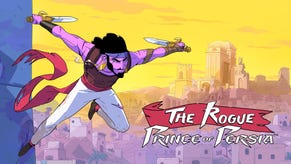Car crash: Far Cry 3 and the dedication to oddity
Artistic success may require multiple products and bravery from both publisher and creative, says Patrick Garratt, with Far Cry 3 proving how valuable risk-taking can be.
Commitment to unconscious, blind creativity is essential to any medium. Certain game publishers should take note.
JG Ballard's The Atrocity Exhibition is an odd book, more idea-evolution than story. Its concepts - industrialised celebrity, the mechanisation of humanity and a resultant "new sexuality" in symphorophilia - would form the basis of Crash, Ballard's next release and a stand-out novel.
A bizarre ramble through Ballard's shock at the death of his wife in the late 60s, The Atrocity Exhibition is a seminal piece of surrealism that would probably get no further than an agent's slush pile today. It is, in truth, a beautiful thing, but it caused a great deal of controversy and confusion at the time. Crash, Ballard's most successful work in the early part of his career, could never have existed without it.
Ballard later described his decision to write Crash based on the themes gestated in the previous book as a mad one. One editor famously noted on a draft copy, "This author is beyond psychiatric help. Do not publish!" No one else involved listened to reason, thankfully, and Ballard was able to complete the process of pouring a liquid jelly of disparate ideas into the mould of a traditional novel. The result was a unique, disturbing triumph.
Artistic releases may fail in relative commercial terms, but, as strange as they sometimes are, it's critical to remember they may not be a final destination. Nowhere is this truer than in the games industry, where horribly expensive franchises can require many years and several games to come of age. It can take braveness and patience, both from creator and publisher, to continue to invest in a concept which is nebulous but exploding with ideas.
Far Cry 3 is a good example of how retaining commitment to a confused vision can reap huge rewards. Far Cry 2 was a mess, and remains one of my favourite games. While it failed to gel its principal elements of world, play and plot, its abundance of "place" provided an unforgettably adult experience of loneliness and desperation in the African jungle. Despite its sublimity as a general toy, many despised it for infinite spawning and a lack of characterisation. Ubisoft, by all rights, should have shelved it as a failure.
Thankfully, the third game took the genius components of Far Cry 2 and forced them into arguably the most mirror-polished, laser-designed open-world title ever made. Ubisoft's Canadian super-dev framework can create market-leading products in terms of scale and finish, as referenced by Assassin's Creed, and when Far Cry 2's mutated DNA was injected into it the end result was triple-A's edgiest, most creatively successful game of 2012. The decision to continue with Far Cry was courageous, and should be applauded.
Publishers need managerial staff with an oddity commitment. If Ubisoft didn't have them, Far Cry 3 wouldn't exist.
Far Cry isn't the only instance of a publisher having confidence in an ostensibly bizarre vision with eventual pay-off. THQ bet the farm on Saints Row, Volition's nonsense blend of customisation, sexualisation and riding around with a tiger in the passenger seat, and the incredible third game hit the big time with 5.5 million units shipped. Saints Row 2 sold half that. Unfortunately, the franchise didn't mature fast enough to save the company, but c'est la vie.
This isn't to say that games companies should plough endless resources into series that hold little merit in the vain hope someone may eventually find some, and nor does is mean publishers should build portfolios entirely comprised of innovative speculation. If a franchise is burnt it's burnt (Guitar Hero). If an IP is heavily titled but in need of invention to ensure it can continue to be iterated, that has to be recognised (Call of Duty). What shouldn't happen is that a creative team makes a great, strange, broken game, only to have ongoing work shelved because it doesn't sell 6 million units. Publishers need managerial staff with an oddity commitment. If Ubisoft didn't have them, Far Cry 3 wouldn't exist.
The risks involved in developing triple-A games are gigantic, but it's vital to the furthering of the medium that publishers and developers remember they're sometimes creating artistic visions, not just "products". A novelist investing considerable time on difficult concepts takes no less of a gamble, but we should all be thankful of writers like Ballard being prepared to roll the dice. Ubisoft and THQ are examples of games creatives who upped the ante on challenging themes and ultimately succeeded. Commitment to unconscious, blind creativity is essential to any medium. Certain publishers should take note.





.jpg?width=291&height=164&fit=crop&quality=80&format=jpg&auto=webp)



.png?width=291&height=164&fit=crop&quality=80&format=jpg&auto=webp)
